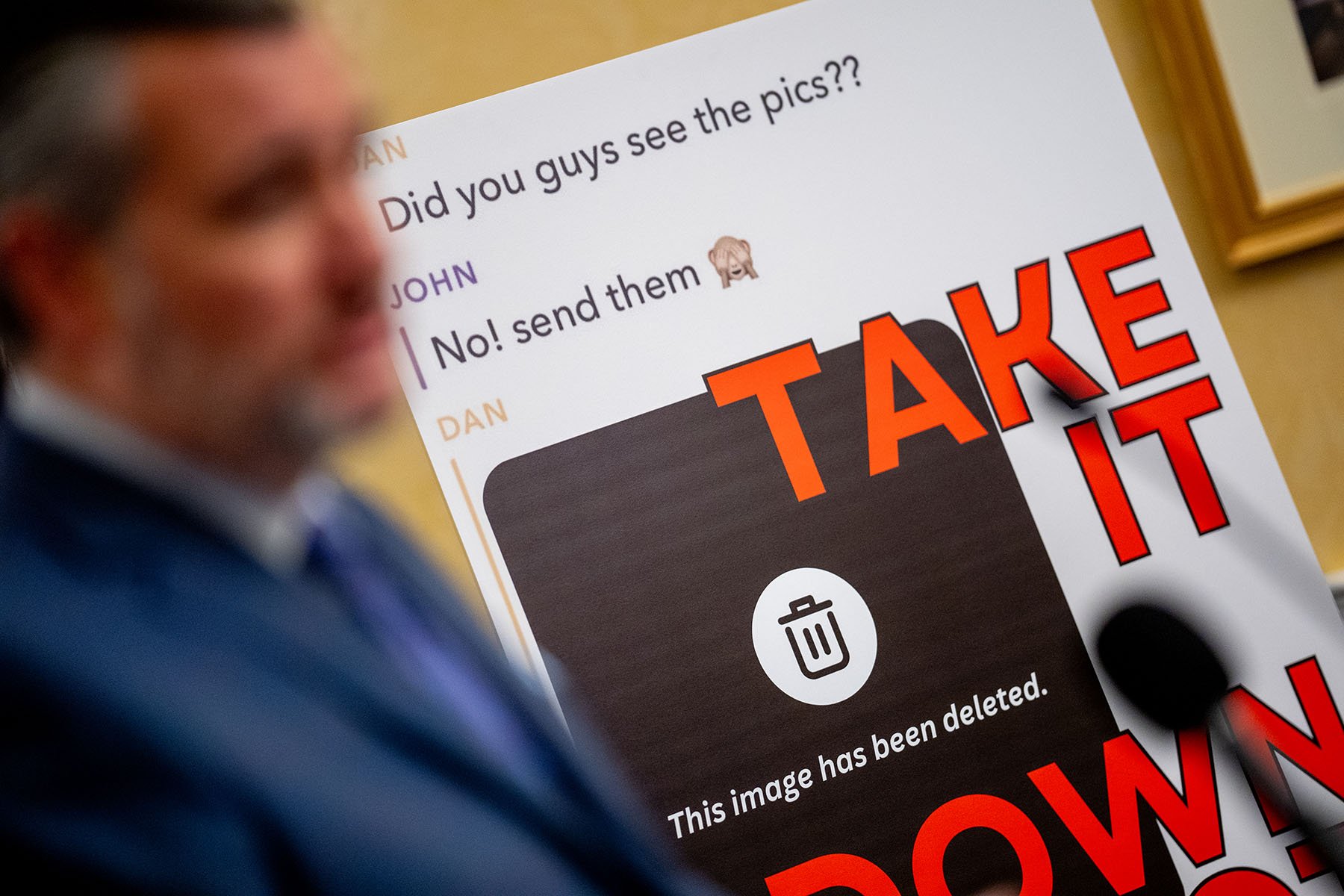The House on Monday voted 409-2 to pass a bipartisan bill that would require online platforms to remove nonconsensual intimate imagery, including sexually explicit deepfakes and so-called “revenge porn.” The Take It Down Act now will be sent to President Donald Trump’s desk, and he has vowed to sign it into law.
The Take It Down Act, first introduced in June 2024 by Republican Sen. Ted Cruz and Democratic Sen. Amy Klobuchar, has passed the Senate twice. The bill passed out of the House Energy and Commerce Committee nearly unanimously earlier in April.
First Lady Melania Trump hosted a roundtable at the White House on March 3 to rally support for the bill. She also brought 15-year-old Elliston Berry, a victim of deepfake abuse who has been advocating for the passage of the Take It Down Act, as a guest to Trump’s March address to a joint session of Congress. Trump expressed support for the measure during his speech that night.
The bill requires online platforms to remove nonconsensual intimate imagery within 48 hours of a request. The bill also makes the harmful creation and distribution of images a crime punishable by fines or jail time.
Digital civil rights groups have voiced worries about how the bill could be weaponized to remove lawful speech. Other groups have argued that the bill could imperil encrypted communications. Trump’s assertion that he would use the bill on his own behalf alarmed free speech advocates, raising concerns he would try to remove criticism from online platforms.
-
Read Next:
Omny Miranda Martone has been advocating for the passage of federal legislation addressing nonconsensual intimate images since before the Take It Down Act was introduced. Martone was targeted by deepfake abuse because of their activism, but it didn’t stop them.
“I know firsthand the devastating effects that nonconsensual explicit materials have on a person’s life, safety and mental health,” Martone told The 19th. “But like so many survivors I’ve spoken to across the country, I refused to be silenced — and today, we are one step closer to justice.”
Nonconsensual intimate images can spread quickly from platform to platform, making it difficult for victims to curb circulation. “Victims all want and need different things to heal but one thing is universal. Every victim I’ve spoken to wants the harmful content of them removed,” Martone said.
-
Read Next:
Many images are also shared with a victim’s full name, contact information or home address, increasing the chances of escalating harassment.
Advocates have emphasized that the nonconsensual creation or distribution of intimate images is a form of sexual violence. Research has shown that victims of image-based sexual abuse experience similar negative mental health symptoms as those who were assaulted physically.
Democrats have expressed concerns about the ability of the Federal Trade Commission to enforce the request-and-removal provision of the bill after agency staffing cuts and the unprecedented removal of its two members.
“We urge the President to sign the TAKE IT DOWN Act into law immediately,” Martone said. “Survivors have waited long enough. Every day matters.”







